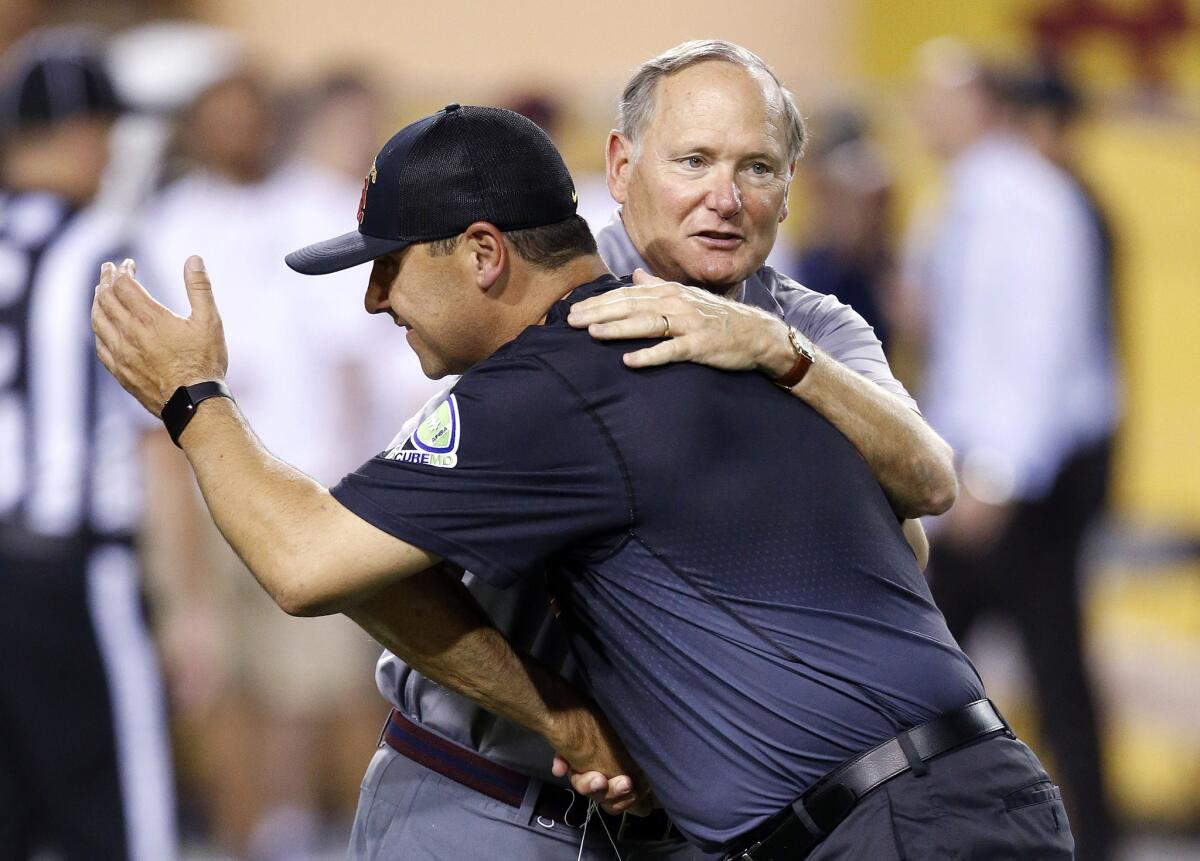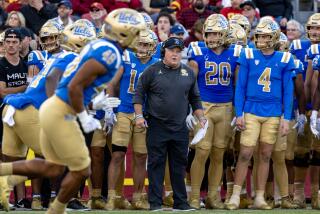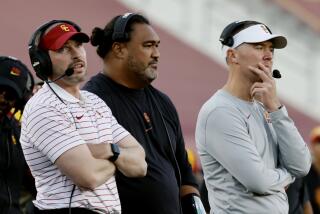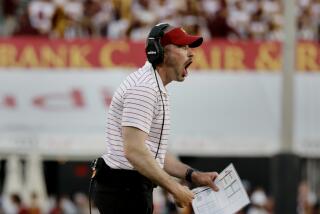Editorial: Why didn’t USC see the red flags around Steve Sarkisian?

USC football coach Steve Sarkisian receives a hug from athletic director Pat Haden prior to the team’s game against Arizona State in Tempe, Ariz. Sept. 26.
USC football fans went into full recrimination mode this week after Athletic Director Pat Haden fired troubled football coach Steve Sarkisian, apparently in connection with a long-rumored drinking problem. Much of their frustration seemed focused on Haden, who hired Sarkisian in 2013 after four mediocre seasons and three years of tough NCAA sanctions because of rule violations during the tenure of erstwhile coach Pete Carroll. Trojan fans were ready for a return to championship-caliber play. Instead, the team stands at 3-2 and has little chance of competing for the collegiate title.
In hindsight, there were plenty of red flags waving around Sarkisian, a former USC baseball player and an assistant football coach under Carroll. The Times reported Monday that Sarkisian had run up big alcohol tabs while traveling as coach of the University of Washington’s football team, and quoted former players saying he smelled of booze at some team meetings. More recently, Sarkisian had seemed drunk at USC’s main preseason event in August, slurring his way through a very public pep talk. He later said he’d mistakenly mixed alcohol and prescription drugs, and that he would be evaluated to determine whether he had a drinking problem.
Like any other members of the faculty, college coaches serve as important role models for the players they teach. Nevertheless, that doesn’t mean USC should have dumped Sarkisian just because he showed signs of alcohol abuse. Federal law requires employers to help, not fire, employees whose work is impaired by their habit, although not if they pose a danger or if they drink on the job. Haden says that’s what USC tried to do after the flap in August but that Sarkisian didn’t live up to his end of the bargain.
With a football program as storied as USC’s, it’s easy to second-guess the hiring of any coach who doesn’t win as many games as the alumni expect. In Sarkisian’s case, however, the more important question is whether the university put the coach in a position to overcome his health issues, or if it let the problems escalate through inattention or willful blindness. Haden did an honorable thing in August by not using Sarkisian’s health problems as an excuse to toss him off the payroll, but it’s worth asking whether the university should have known about the problems earlier in order to help Sarkisian deal with them. Instead, USC seemed to have been caught by surprise when the coach got worse instead of better.
Follow the Opinion section on Twitter @latimesopinion and Facebook
More to Read
A cure for the common opinion
Get thought-provoking perspectives with our weekly newsletter.
You may occasionally receive promotional content from the Los Angeles Times.






